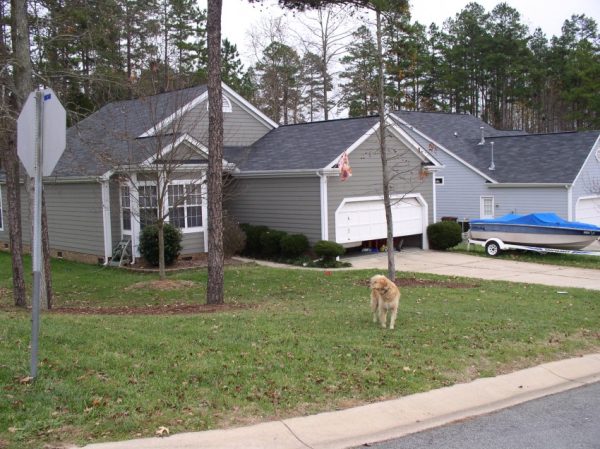Bill would shut down community choice

In recent years, progressive developers have made an important discovery. If they incorporate design features into their development proposals to make them look and function better, communities will allow them to build more product. But their investment can be fundamentally devalued if communities aren’t allowed to establish basic design standards to ensure a similar quality in the surrounding neighborhood. That’s why it’s so surprising that development interests are promoting bills in the N.C. General Assembly (House Bill 150/Senate Bill 139) to prevent communities from using a number of design standards for residential development.
A growing number of cities and towns across North Carolina use design standards to protect existing neighborhoods and ensure that new development supports the character and property values of the community. This is important in older neighborhoods with a distinctive character that don’t qualify for national or local historic designation and in smaller communities without the resources for a historic district program.
| This commentary is one part of a pro/con package. The opposing view: House Bill 150 deserves our support |
And it’s important in newly developing areas where a community decides to promote a particular design and appearance.
Local design requirements are not enacted casually. They are generally established only after years of collaborative study and review by residents, businesses, developers and others, recognizing the legitimate interest of each participant in the outcome. The resulting standards represent carefully crafted compromises that balance land use, density and design in a way local stakeholders can support.
Consider the Town of Morrisville. In 2006, it spent a year working with the community to prepare a Town Center Plan to create a vibrant central gathering place for the community. Then it spent two years working with local stakeholders to prepare a Town Center Code to implement that vision. The result helps protect the community’s small town character as it grows and supports a community branding strategy that will help the town remain a place of lasting value long into the future. Yet the bills would invalidate key provisions of that framework. The nearby Wake County town of Apex has similar standards in its aptly named Small Town Character Overlay District. So do a growing number of cities and towns across the state that use Neighborhood Conservation Districts to protect the distinctive character of older neighborhoods.
Or consider Huntersville, in north Mecklenburg County, which decided to do away entirely with minimum lot size, minimum lot width and other basic requirements in newer areas in order to give developers more flexibility to deliver a quality product at affordable prices. But it could only do this and maintain the support of residents and businesses by requiring certain design standards to ensure that the new development fit into the character of the neighborhood.
The bills’ proponents might argue that N.C. communities don’t have the legal authority to require design standards. But protecting “the character of the district” and the “value of buildings” has been an expressed public purpose of planning and zoning powers since they were first authorized in the 1920s.
In addition, North Carolina case law has established the right of communities to enact zoning measures based on aesthetic concerns alone, in order to protect property values, promote tourism and preserve the character and integrity of the community.
The bills’ proponents might argue that design standards infringe on consumer choice. But homeowners clearly select their home and their neighborhood, and most communities offer a range of housing types and styles from which to choose. The nature and cost of this mix is more a function of what land is available and zoned for single-family and multifamily housing than whether the community requires design standards. What residents can’t choose is incompatible development that might go in nearby, if a community is not able to set basic design requirements that ensure a consistent level of quality.
For many residents, their home is their most valuable asset, and design standards help protect their property values and resale potential. They should be seriously concerned about legislative efforts to remove such protections.
Private restrictive covenants are a relatively recent phenomenon and don’t protect older neighborhoods from teardowns and ugly infill, and don’t protect newer neighborhoods from low-quality development that locates nearby.
The bills’ proponents might argue that design standards limit affordable housing. Yet, design standards build acceptance for affordable housing among existing residents, by ensuring that affordable units fit into the community, and in that way help these projects get approved.
North Carolina is home to communities with a diverse range of needs and aspirations.
Unfortunately, these bills would wipe away customized local solutions and disregard the desires of community residents, businesses, and other stakeholders, replacing them with a one-size-fits-all directive from the state level. And like most unilateral action, this legislation would have some serious unintended consequences. For example, it would open single-family neighborhoods across the state to conversion into multiple-occupancy rental units. Homes with unlimited numbers of kitchens, bedrooms and baths would be permitted in every single-family zone. Those homes could be rented to as many unrelated individuals as local codes allow. Talk about a recipe for upsetting the neighbors.
Design standards help protect homes, neighborhoods and residents’ right to decide the future of their community. Whether a town wants streetscapes, garage-scapes or something in between, shouldn’t this remain a local choice? If the answer is “yes”, then the correct vote on H150/S139 is a resounding “no.”
Opinions in this article are those of the author and not necessarily those of the UNC Charlotte Urban Institute or the University of North Carolina at Charlotte.
Ben Hitchings is the planning director for the town of Morrisville. He can be reached at bhitchings@townofmorrisville.org.
Ben Hitchings